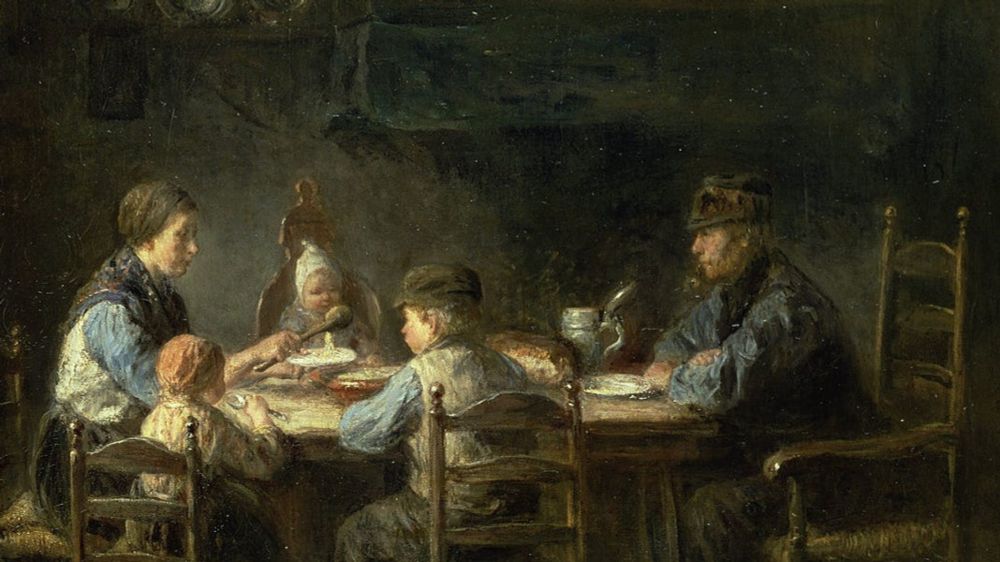
Josh Briscoe
@jbriscoe.bsky.social
Hospice and Palliative Care Physician
#MedPsych #MedSky #HAPC #Bioethics
Writing @ Notes from a Family Meeting: https://familymeetingnotes.substack.com
#MedPsych #MedSky #HAPC #Bioethics
Writing @ Notes from a Family Meeting: https://familymeetingnotes.substack.com
Bioethicists have been debating the idea for a while, e.g., pubmed.ncbi.nlm.nih.gov/24556152/. Now others are trying to empirically validate the concept. I think it is a case where bioethics for some is really just figuring out how to use technology to support a single bioethical principle.

Treatment decision making for incapacitated patients: is development and use of a patient preference predictor feasible? - PubMed
It has recently been proposed to incorporate the use of a "Patient Preference Predictor" (PPP) into the process of making treatment decisions for incapacitated patients. A PPP would predict which trea...
pubmed.ncbi.nlm.nih.gov
October 21, 2025 at 9:12 AM
Bioethicists have been debating the idea for a while, e.g., pubmed.ncbi.nlm.nih.gov/24556152/. Now others are trying to empirically validate the concept. I think it is a case where bioethics for some is really just figuring out how to use technology to support a single bioethical principle.
In one sense, AI surrogate decision-makers are the right answer to the wrong question: familymeetingnotes.substack.com/p/a-machine-... #hapc #ai #medsky

A Machine Better Than Family
Artificial Surrogate Decision-Makers (i.e., the Patient Preference Predictor)
familymeetingnotes.substack.com
October 20, 2025 at 11:15 PM
In one sense, AI surrogate decision-makers are the right answer to the wrong question: familymeetingnotes.substack.com/p/a-machine-... #hapc #ai #medsky

Nothing Better than Silicon
A Tale of Surrogate Decision-making in Three Parts
familymeetingnotes.substack.com
October 20, 2025 at 11:15 PM
Reposted by Josh Briscoe
So maybe 15 years from now none of this will matter (though I'm skeptical) -- but in the meantime, I think I stand by what I told Dhruv in that story, if we (meaning educators) don't figure out how to train the next gen in this environment, we're all screwed.
October 17, 2025 at 1:19 PM
So maybe 15 years from now none of this will matter (though I'm skeptical) -- but in the meantime, I think I stand by what I told Dhruv in that story, if we (meaning educators) don't figure out how to train the next gen in this environment, we're all screwed.
Reposted by Josh Briscoe
My biggest concern about this technology in the short (and, well, medium)-term is what is does to US, especially the current generation of doctors in training. Even the difference between my third year and first-year residents is pretty stark in their use of AI tools (especially Open Evidence)
October 17, 2025 at 1:14 PM
My biggest concern about this technology in the short (and, well, medium)-term is what is does to US, especially the current generation of doctors in training. Even the difference between my third year and first-year residents is pretty stark in their use of AI tools (especially Open Evidence)
I don't discount the possibility that AI might be helpful in a number of different ways, but there's very rarely an unmitigated good in health care. There's almost always a trade-off, and we should consider that instead of writing advertisements for journals.
October 14, 2025 at 9:51 AM
I don't discount the possibility that AI might be helpful in a number of different ways, but there's very rarely an unmitigated good in health care. There's almost always a trade-off, and we should consider that instead of writing advertisements for journals.
These authors come close to highlighting lessons from our experience with EMRs. It's like their hope in AI overwhelms their realistic appraisal of how the EMR and AI are alike in that they're both forms of technology which shape us. web.cs.ucdavis.edu/~rogaway/cla...
web.cs.ucdavis.edu
October 14, 2025 at 9:25 AM
These authors come close to highlighting lessons from our experience with EMRs. It's like their hope in AI overwhelms their realistic appraisal of how the EMR and AI are alike in that they're both forms of technology which shape us. web.cs.ucdavis.edu/~rogaway/cla...
If the relationship fundamentally changes, it's because one or both parties in the relationship are dehumanized by the ever-increasing mechanization of the clinical encounter. familymeetingnotes.substack.com/p/my-machine...

My Machine-Teacher, the Electronic Medical Record
Notes from a Family Meeting, Vol. 3, No. 8
familymeetingnotes.substack.com
October 14, 2025 at 9:25 AM
If the relationship fundamentally changes, it's because one or both parties in the relationship are dehumanized by the ever-increasing mechanization of the clinical encounter. familymeetingnotes.substack.com/p/my-machine...
4. "Expect the physician-patient relationship to evolve." This prediction is grounded on a wholly technical understanding of that relationship in which the clinician is responsible for providing services to a customer. This relationship is about a person in need seeking help from another human.
October 14, 2025 at 9:25 AM
4. "Expect the physician-patient relationship to evolve." This prediction is grounded on a wholly technical understanding of that relationship in which the clinician is responsible for providing services to a customer. This relationship is about a person in need seeking help from another human.
3. The fatalism is obvious. They draw the parallel w/ EMRs but don't draw out the implication: "Just as the electronic health record forced clinicians to spend more time at computers, GenAI will alter how clinicians work." What will #AI force us to do? familymeetingnotes.substack.com/p/where-the-...

Where The Walls Listen
Artificial Intelligence and Clinical Scribes
familymeetingnotes.substack.com
October 14, 2025 at 9:25 AM
3. The fatalism is obvious. They draw the parallel w/ EMRs but don't draw out the implication: "Just as the electronic health record forced clinicians to spend more time at computers, GenAI will alter how clinicians work." What will #AI force us to do? familymeetingnotes.substack.com/p/where-the-...

